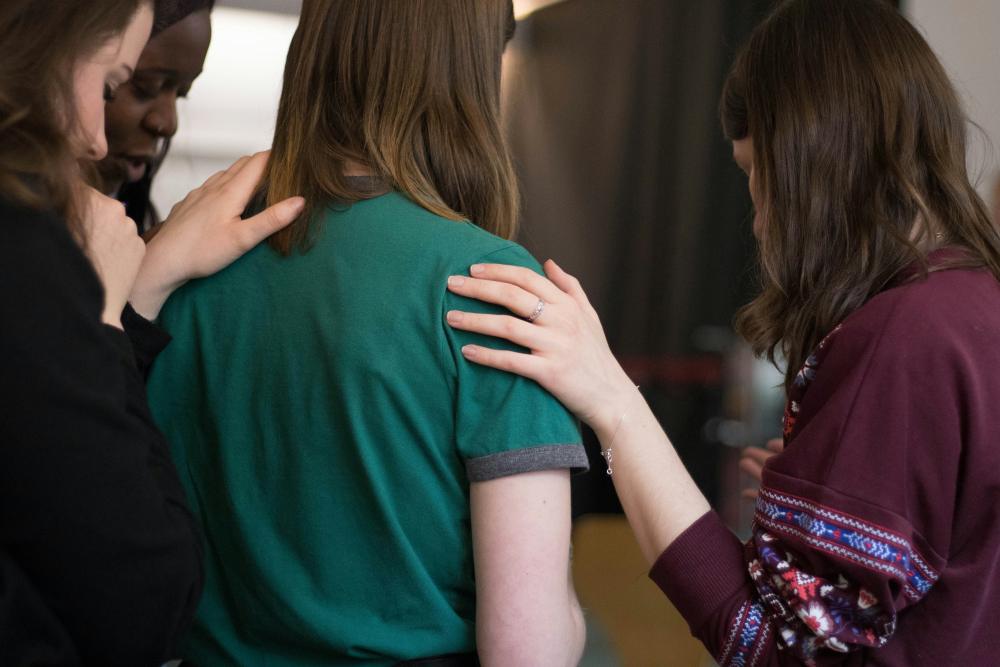If you have ever watched the sky just hang there, heavy and silent before a summer thunderstorm? That’s the moment a parent gets when they sense trouble—not quite proof, but the air feels different, thick with “what ifs.” First it’s missed calls, weird excuses about being late, or a sudden wall in place of the kid you thought you knew. Then—bam—the storm arrives, no umbrella in sight, and you are drenched, blinking, trying to make sense of the mess.
Addiction never sends a warning letter to your family dinner table, does it? You never get the training montage in advance; you’re just cast (ready or not) in the lead role of “Parent Facing Disaster.” Here’s the shocker: Nobody does this alone. (No, really.) There are hands—sometimes outstretched, sometimes hesitant—waiting to steady you and your child. Ditch the blame game, fire the inner critic. Now’s the time to write your next chapter, even if the pages still feel slippery.
The Day Your Old Scripts Shred Themselves
Raise your hand if you ever thought you had this parenting gig half-figured out. Me too, once. Then life’s director tosses the script, and suddenly nothing fits. Your child, the kid from family movies and first bike rides, seems replaced with someone distant, someone whose smile you barely recognize.
Let yourself grieve that loss, that encyclopedia of “should have been.” You lose small things—jokes only the two of you shared, the easy trust, the promise of “someday.” What’s wild is, underneath the noise of addiction, your child is often still there. Faint, but stubborn.
Here’s the whip: You can’t save them solo. (Let that one linger as long as it needs to.)
Searching for Words That Don’t Sound Like a Hallmark Card
Forget finding a “cure-all” phrase. Addiction bulldozes platitudes for breakfast. Still—some words matter. Try: “I notice things are rough. I’m with you.” Or, “This isn’t just your battle. We’re a team, even if it feels weird right now.”
You will fumble, stammer, say the wrong thing now and then—welcome to the club. But clamming up does more damage than you think. Trying to tough it out in secret? Costs more than a therapy bill. Shame grows best in hidden places. Don’t give it the dark it craves.
So: talk. With friends, yes, but also with counselors and the kind of strangers who turn out to get it—parent groups, real allies, the therapist who actually listens instead of just nodding. Nobody’s demanding a memoir. The act of speaking is its own medicine. And for families looking to take an active step toward healing, specialized counseling and wellness programs can make a crucial difference.
Maze Runners Anonymous
Trying to navigate the world of rehab and recovery programs is a bit like hunting horcruxes with a sketchy map. (Seriously, half the acronyms make less sense than TikTok trends.) There’s insurance lingo, waitlists longer than airport security, and the occasional advice from someone who watched a documentary once.
Are you lost sometimes? Of course. Here’s my hot take: Everyone’s making it up as they go, even the “experts.” Just now, I called a helpline to help a friend and still left with more questions than answers. The point isn’t to have it sorted, but to get the right people on your bench: addiction pros, counselors, the family doctor who has seen this before. And sometimes, outpatient addiction treatment offers a flexible path forward—allowing your child to heal while staying connected to school, work, and family life. Spill your worries. You are not a bother.
When Boundaries Feel Like Betrayal
Setting boundaries with a child teetering on the ledge of addiction? Welcome to Tough Love Olympics, where nobody wins gold. It’s a bizarre calculus: bend, don’t break; support, but don’t enable; love, but let go. You’ll wobble. You’ll spend all weekend second-guessing your own courage.
Here’s the trick: boundaries are not moats. They’re bumpers on the bowling alley lane—helpful, not punitive. Maybe you ban drugs from the house, guard the checkbook, redraw what respect means under your roof. Don’t expect applause. Just breathe and keep at it.
The Mythical Beast Called “Perfect Parenting”
Let’s cancel the guilt parade, shall we? Every parent I know (including me, this morning, with coffee in hand and nerves worn thin) has run replay tapes in their mind: Where did I go wrong? There’s no algorithm for addiction—genes, environment, dumb luck, plain old pain. Blame changes nothing.
You get to feel furious, scared, or just drained. You get your ugly-cry-in-the-bathroom moment. Most importantly, you get to begin again, every sunrise, if you want it.
Neighbors, Friends, The Jedi Council (a.k.a. Your Community)
You’re not Luke fighting Vader without Obi-Wan. You need help—real help. Friends, even if they don’t understand, can remind you to laugh. Counselors are lifeboats. Al-Anon, SMART Recovery Friends & Family…those meetings don’t judge if you show up messy or late. And if you ever need confidential, around-the-clock support—whether you’re overwhelmed, full of questions, or just needing someone to listen—the SAMHSA National Helpline is always available, free, and staffed by people who know this journey well.
One thing: don’t forget to recharge yourself. Ignore the “martyr” voice and remember—sleep, food, joy, sunlight. Refuse to become collateral damage. You’re in this for the long haul.
Rewriting What Hope Looks Like
Hollywood loves the five-act transformation. In real parenting, recovery skips and sputters, sometimes backward and sometimes nowhere obvious. Still—every honest check-in, every imperfect but loving boundary, every exhausted but determined “I’m still here”—that’s hope. Quiet, stubborn, invisible hope.
Sometimes you’ll go weeks with no change. Then, one day, your child won’t flinch when you hug them. Small wins. Take them. That’s fuel for the next round.
Drug Rehab: Not a Four-Letter Word
If you’re reading the brochures, fighting with insurance, or calling places you never imagined? That’s real work. Remember: rehab isn’t exile or punishment—it’s the space where your kid gets to remember themselves, stop the madness, maybe try again.
Get a full assessment with an addiction specialist. Overflow with questions. You’re not a benchwarmer; you’re key to the plan.
Showing Up, Day After Day
Here’s the secret superheroes know: Just being there counts. Not every day with answers, sometimes just with leftovers or an awkward joke. One day, maybe a year from now, maybe longer, your steady presence will be the net that catches your child if they jump.
On the Other Side: No Maps, Just Footprints
Addiction messes with everything, but it doesn’t erase love. You might someday find your family is stronger in strange, unplanned ways—more honest, more open, less afraid. There’s still no GPS for this future, just your stubborn willingness to keep walking.
If you’re here, hiding in a bathroom or Googling at 3 a.m.: I see you. You’re tougher, kinder, and more resourceful than you know. Your story—your child’s—is nowhere near finished.
“Recovery is about far more than removing substances—it’s about restoring hope, dignity, and the belief that change is possible for every individual and family. No one should have to face addiction alone; compassionate support and evidence-based care are the foundation of lifelong healing.”
— Dr. James Craig, Medical Director, Thoroughbred Wellness and Recovery
Keep going. The lightning passes. And somewhere, after the next day and the next, there’s sun on the other side.
Do you need some strategies to help you make self-care a priority?
Snag a free workbook and get inspiration on all the ways to love your life even more.
>>Click Here to Discover Additional Articles on Strategies to Get Your Life on Track <<









